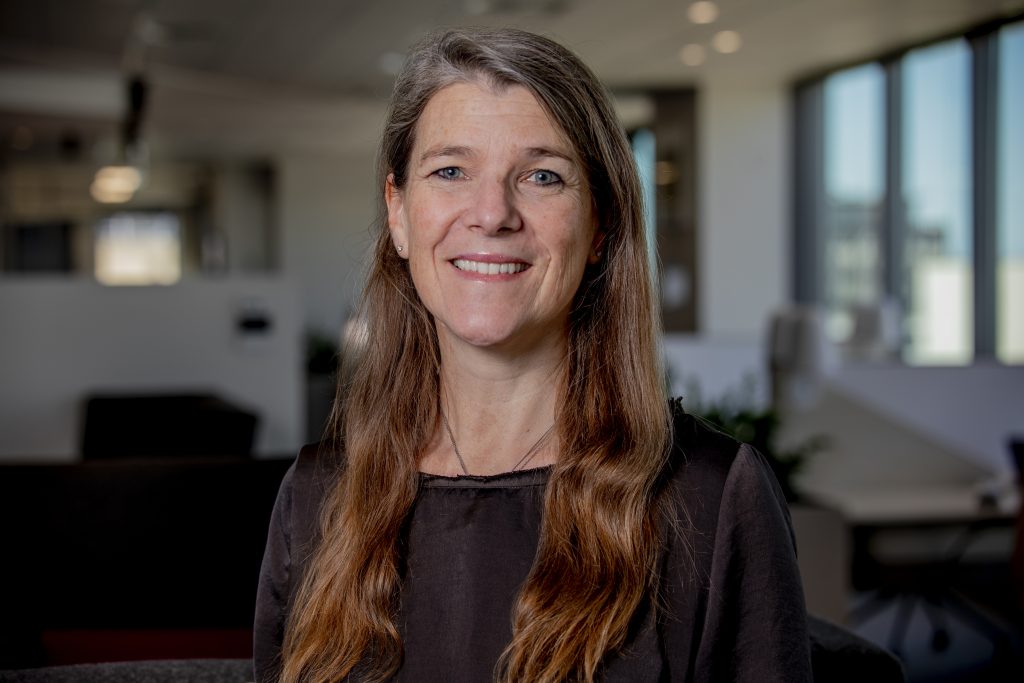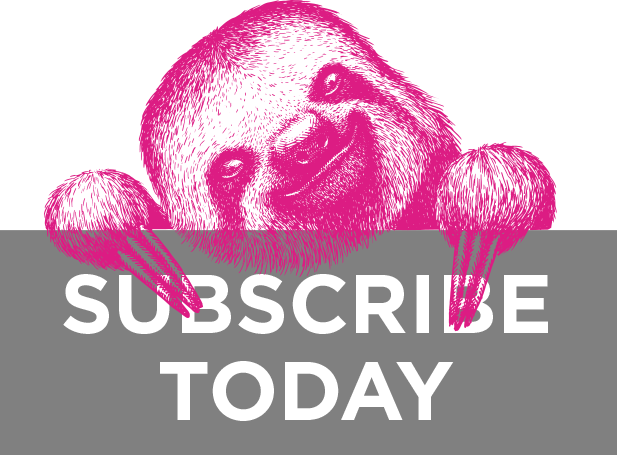An Office of Clones
An Office of Clones: Why a Lack of Diverse Thinking Undermines Performance
Modern Insurance Magazine sat with Dr Juliet Bourke and Dr Andrea Titus to discuss the ‘Cloning Mentality’ within the insurance industry. We explore how this, and a lack of diversity in thought, can lead to an unchallenged hierarchy in business, ideas and a company’s vision.
Q. What is ‘Cloning Mentality’ within an organisation? Why does it dominate? How does it threaten the future success of an organisation?
A. Juliet: Cloning is the natural outcome of homophily. Homophily is a bias where we prefer people who are more similar to us than different. I looked at this in the book I wrote, Which Two Heads Are Better Than One? and I identified that, in organisations, people tend to prefer people who think the same way. They tend to like those who solve problems using the same mental models as they do. Leaders who tend to be, for example, very outcomes-focused prefer to be surrounded by others who are also outcomes-focused. Therefore, they pay less attention to people who might bring a different type of approach, such as a more people-oriented or more process-oriented frame to the table. Those different are listened to less, championed less, and promoted less.
Obviously, this threatens organisational success because that’s built on spotting and avoiding mistakes as well as taking strategic risks. And you can’t do either of those if you don’t have the diversity of thinking. So that’s really where I want it to take this conversation on cloning – diversity of thinking.
A man I admire, Professor Scott Paige from Michigan University, proved that the likelihood of making a mistake could be reduced by 30% if the team is diverse. In other words, if you are surrounded by clones, you are going to make mistakes 30% of the time, while a diverse team neutralises that error rate. What I found in my own research on the more positive side is an increase in innovation as well – that is, if you have a diverse thinking team, you get a creative uplift of about 20 %. Plus, the group’s decision will garner greater followership. That’s because when a decision is made by a diverse team, people look at that team and think, ‘I see myself, I see my voice represented in that team’ and therefore they have greater confidence in that ultimate decision and are more willing to implement it.
diversity of thinking
A real-life example was the acquisition of the UK Green Investment Bank by Macquarie Group, a global investment house. I spoke with Peter Warne, the chairman, and he said that the acquisition was slower than they had expected. In fact, it was delayed by about twelve months. Why? Because although the deal team had the best structurers, the best mathematicians and legal minds, there were no people who were looking at the deal from a people angle. Those folk would have complemented the team by thinking about the sale in terms of ‘who were the most impacted stakeholders?’, ‘what did the sale mean to them?’, ‘how were they going to cater to those views?’. That gap meant mistakes were made.
So, I guess the question is, if it seems so obvious – that cloning creates risk – why do we have it? It goes back to that issue of homophily again; it’s difficult to see ourselves succumbing to homophily. The group conversation feels quite natural and comfortable. When you have your own voice echoed back to you, it’s validating.
Often when organisations talk about cloning, they are referring to demographic similarity. That’s important; we need to reflect the communities in which we operate and draw on a broad pool of talent. Equally we need to talk about cognitive cloning. That’s much less obvious, but it’s critical to business success.
the inclusion of diverse thought may help
organisations navigate the great resignation
Q. What has been, historically, the limits to diversity of thought within an organisation? Is it personal or situational? Will the global acceleration towards remote working, allowing recruiters to disregard location of recruits, help?
A. Andrea: Historically, underrepresented groups have faced unique constraints in the workplace. By that, I mean people who work in regional areas, or people with disabilities, might find it more challenging to commute or navigate an office setting. Yet, remote working has gradually eroded some of these barriers. So, groups that would have otherwise been excluded, now have a seat at the proverbial table.
In a similar vein, remote recruitment practices have augmented the talent pool. Expanding geographic search parameters provides access to more diverse populations, new talent partnerships, and extended referral networks.
An example that brings this to life for me is within the technology division of my organisation. In our new virtual world, the team has really focused on attracting software engineers beyond just the major cities. Our data reveals about 6000 engineers in surrounding regional areas and an additional six universities within 70 kilometres with a really strong pipeline of talent. We know that it’s really imperative for us to tap into this source to be able to meet our digital transformation needs – needs which have only been accelerated by the rise in remote working [Foster, 2021].
Yet, remote working also poses risks to diversity of thinking. The reduced incidental contact in virtual settings can prove more challenging to connect with other colleagues and senior leaders. Marginalised or underrepresented groups may find it even more difficult to gain visibility in remote settings. It’s a complex paradox to solve for: remote connection amidst physical isolation.
Q. Do you think the rapid response needed to survive the pandemic helped break down the cloning mentality in some organisations? Or did it make it worse?
A. Juliet: Before the pandemic, most organisational decision-making was made at the top of the organisational hierarchy and cascaded down. That all changed on a dime during the pandemic with decision-making occurring much closer to the action and in real-time. Unexpectedly, this helped to unleash diversity of thinking because my research revealed that those further away from the top of the organisational hierarchy, were more likely to reflect the six different approaches to problem solving (outcomes, options, people, process, risk and evidence), whereas at the top leaders were much more likely to focus on just two (namely outcomes and options).
So, the pandemic helped to unleash cognitive diversity because organisations were forced to empowered a broader set of people to make decisions. The downside was that teams started to have less connectivity with other teams across the enterprise. Silos became much stronger. So, diversity of thinking became curtailed in a new way – across the enterprise rather than up and down the food chain.
Andrea: The pandemic itself was a proof of concept that new ways of working can still be valid, fostering the experimentation of different ideas and new perspectives. It fundamentally subverted our assumptions about how we work and even why, with 92% of executives rethinking their company’s approach [ServiceNow, 2020]. In its wake, we were left with this really unique opportunity to reimagine our workplaces. This catalysed people to challenge the status quo and longstanding norms.
Q. On the flip side, is there an argument to make for the increase in workload during the pandemic actually making organisations less diverse in thought?
A. Andrea: As a psychologist, we recognise that under stress people tend to default to gut instincts and heuristics [Yu, 2016, University of Singapore]. Especially under pressure, it’s human nature to gravitate towards the familiar and the safe. Even the really well-intentioned can revert to patterns of exclusion. And, in a crisis, decisions have to be made rapidly, which can sometimes override the need to include different voices because it does take time to explore different ideas.
Ironically, it’s in times like the recent pandemic, which is characterised by uncertainty and deficient data, when this diverse thinking is really critical for decision-making.
Juliet: Just to add, complexity means we need more diversity of thinking to solve problems, but cognitive depletion means that we are less capable of attending to diversity of thinking – we get tunnel vision. And the irony is that we do not even have the capacity to care about this conundrum. That’s the icing on the cake.
Q. What effect does a cloning mentality have on employee experience? Do you think the lack of diverse thought turns an environment toxic and is playing a part in the ‘Great Resignation’ that is currently taking place?
A. Andrea: A lack of diverse thought can cultivate the conditions for blandness and, at worst, toxicity to flourish. Without constructive friction, ideas aren’t sharpened, and any unhealthy behaviours can go unchecked.
On the flip side, inclusion of diverse thought may help organisations navigate the great resignation. About three in four job seekers say that diversity is a really important consideration when evaluating job offers [Glassdoor survey, 2021], while people in inclusive teams are four times less likely to leave their job and ten times more likely to be satisfied [Diversity Council Australia, 2021].
In speaking to one of our senior talent leaders, the sentiment that she shared from our partner executive recruitment firms, is that a lot of this attrition and market movement has really been typified by the pursuit of empowerment over one’s career trajectory. In many ways, the pandemic shattered our sense of control – but where we can regain control is where we choose to work. A lot of people nowadays are much more likely to move to organisations where they feel a sense of inclusion, purpose and meaningful experience.
Q. What should an employer look for in a new team member in order to ensure diversity of thought and, ultimately, success?
A. Andrea: Employers should attend not just to surface characteristics like gender or ethnicity but also divergence in perspectives and problem-solving approaches. And because diverse thinking is predicated on the collective, it’s helpful to evaluate new team members in reference to the rest of the team or the organisation. So, thinking about which perspective is missing, what strengths will be complementary, and any aspects of our customer base that isn’t being represented.
In Westpac, our recruitment programmes aim to look beyond the traditional finance backgrounds – we hire people from a range of disciplines. As problems become increasingly complex, and with trends like the digitisation of the economy, we need different lines of thinking to solve for future challenges. So, in our graduate recruitment programme, we have a blind assessment approach so assessment focuses on merit, rather than surface characteristics.
Juliet: I think there is a great need for methods of looking for a diversity of perspective. As Andrea said, looking at STEM, for example, not just finance, that brings a different perspective to the table. But I would also add that I would be looking for different attributes in people because if you’ve got all of that diversity, it really highlights the need for strong interpersonal skills between people. I would think of that in terms of interpersonal inclusions, so their small behaviours that make other people feel included. That’s really the glue.
people tend to prefer people
who think the same way
The antithesis of that is where you have people who are just sole contributors, and that mentality is not helpful because the future is all about integrating capabilities, teams and learning. At the university, we’ve completely changed our first-year learning; our Bachelor of Commerce students would have previously done siloed learning, whereas now they’re doing integrated learning around a problem. They now work on real-life problems, where you have to have different disciplines giving their perspective, and you must value those different view-points and integrate them to really leverage that advantage.
In terms of employees, the best insurers I have seen are no longer looking for someone who can work by themselves without human contact. And they certainly don’t want an office of clones. What they want are people who are cognitively diverse and who have strong interpersonal skills and attributes like curiosity, humility. They want people who know their own capabilities, but also their limitations, so they have a genuine appreciation for, and can leverage, cognitive diversity.
The pandemic itself was a proof of concept that new
ways of working can still be valid

Dr Juliet Bourke is a Professor of Practice, UNSW Business School, UNSW. She is also the author of
Which Two Heads are Better than One?: The Extraordinary Power of Diversity of Thinking and Inclusive Leadership.

Dr Andrea Titus is an organizational psychologist and Executive Manager at Westpac Group.
To read the full edition of Modern Insurance Magazine, click here



